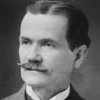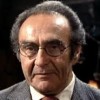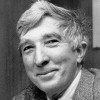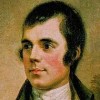In the fields of observation, chance favors only the prepared mind.
[Dans les champs de l’observation, le hasard ne favorise que les espirits préparés.]
Louis Pasteur (1822-1895) French chemist, pharmacist, microbiologist
Speech, as new Dean of Science, University of Lille, France (1854-12-07)
(Source)
Often misattributed to Ansel Adams. It was, though, Adams' favorite aphorism, which he usually paraphrased as to "Chance favors the prepared mind."
Quotations about:
observation
Note not all quotations have been tagged, so Search may find additional quotes on this topic.
There’s many a slip betwixt the observation and the conclusion.
Austin O'Malley (1858-1932) American ophthalmologist, professor of literature, aphorist
Keystones of Thought (1914)
(Source)
Do not be deceived by appearances. The virtue of a man is not to be measured by what he does while his wife is watching.
H. L. Mencken (1880-1956) American writer and journalist [Henry Lewis Mencken]
A Little Book in C Major, ch. 1, § 19 (1916)
(Source)
The eyes of others our prisons; their thoughts our cages.
Virginia Woolf (1882-1941) English modernist writer [b. Adeline Virginia Stephen]
“An Unwritten Novel” (1920)
(Source)
Many eyes go through the meadow, but few see the flowers in it.
An activist is the guy who cleans the river, not the guy who concludes it’s dirty.
H. Ross Perot (1930-2019) American entrepreneur, politician, reformer [Henry Ross Perot, Sr.]
(Attributed)
(Source)
In Ken Gross, Ross Perot: The Man Behind the Myth, ch. 14 (1992). A favorite saying of Perot's, varying slightly over the years (e.g., "The activist is not the man who says the river is dirty. The activist is the man who cleans up the river.").
A wise Man will keep his Suspicions muzzled, but he will keep them awake.
George Savile, Marquis of Halifax (1633-1695) English politician and essayist
“Of Caution and Suspicion,” Political, Moral, and Miscellaneous Thoughts and Reflections (1750)
(Source)
In effect what Luther said in 1517 was that we may appeal to a demonstrable work of God, the Bible, to override any established authority. The Scientific Revolution begins when Nicolaus Copernicus implied the bolder proposition that there is another work of God to which we may appeal even beyond this: the great work of nature. No absolute statement is allowed to be out of reach of the test, that its consequence must conform to the facts of nature.
Notoriously insensitive to subtle shifts in mood, children will persist in discussing the color of a recently sighted cement-mixer long after one’s interest in the topic has waned.
Fran Lebowitz (b. 1950) American journalist
“Children: Pro or Con,” Metropolitan Life (1978)
(Source)
One who is too nice an observer of the business of others, like one who is too curious in observing the labor of bees, will often be stung for his curiosity.
The Church does not superstitiously observe days, merely as days, but as memorials of important facts. Christmas might be kept as well upon one day of the year as another; but there should be a stated day for commemorating the birth of our Savior, because there is danger that what may be done on any day, will be neglected.
Samuel Johnson (1709-1784) English writer, lexicographer, critic
Comment (22 Mar 1767)
(Source)
In James Boswell, The Life of Samuel Johnson (1791)
Celebrity is a mask that eats into the face. As soon as one is aware of being “somebody,” to be watched and listened to with extra interest, input ceases, and the performer goes blind and deaf in his overanimation. One can either see or be seen.
To avoid the various foolish opinions to which mankind are prone, no superhuman genius is required. A few simple rules will keep you, not from all error, but from silly error. If the matter is one that can be settled by observation, make the observation yourself. Aristotle could have avoided the mistake of thinking that women have fewer teeth than men, by the simple device of asking Mrs. Aristotle to keep her mouth open while he counted. He did not do so because he thought he knew. Thinking that you know when in fact you don’t is a fatal mistake, to which we are all prone. I believe myself that hedgehogs eat black beetles, because I have been told that they do; but if I were writing a book on the habits of hedgehogs, I should not commit myself until I had seen one enjoying this unappetizing diet.
DREAM: It has always been the prerogative of children and half-wits to point out that the emperor has no clothes. But the half-wit remains a half-wit, and the emperor remains an emperor.
Neil Gaiman (b. 1960) British author, screenwriter, fabulist
Sandman, Book 9. The Kindly Ones, # 60 “The Kindly Ones: 4” (1994-06)
(Source)
O wad some Pow’r the giftie gie us
To see oursels as others see us!
It wad frae mony a blunder free us,
An’ foolish notion ….Robert Burns (1759-1796) Scottish national poet
“To a Louse,” l.43-46 (1786)
The poem is reprinted in various forms and anglicizations of Burns' Scottish, e.g.,O wad some Power the giftie gie us
To see oursels as ithers see us!
It wad frae monie a blunder free us
An foolish notionO would some Power the gift to give us
To see ourselves as others see us!
It would from many a blunder free us,
And foolish notion:



















